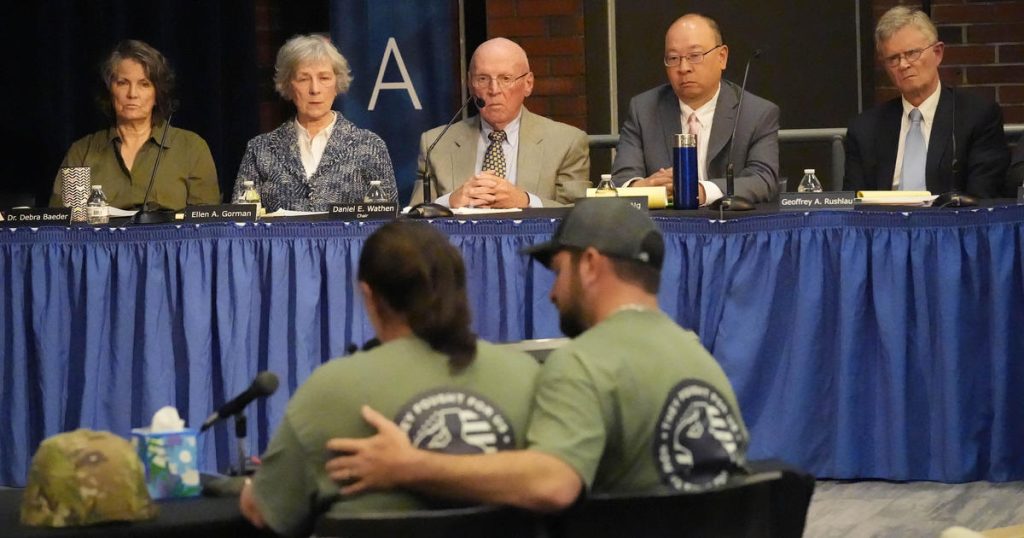The commission’s final report on the Maine shootings, which resulted in the deaths of 18 people in two linked massacres, highlighted missed opportunities to potentially prevent the tragedy. The report pointed to failures by the Army Reserves and local law enforcement in intervening in the gunman’s psychiatric crisis and seizing his weapons before he carried out the attacks. The independent commission, created by Gov. Janet Mills, concluded that both the Army Reserves and law enforcement could have done more to prevent the shooter, Robert Card, from carrying out the deadly rampage.
The 215-page report reiterated findings from an interim report in March, stating that law enforcement had the authority under the state’s yellow flag law to seize the gunman’s weapons and put him in protective custody prior to the shootings. The commission also noted that the Army Reserves should have provided better care for Card and dealt with his weapons. While acknowledging that Card was solely responsible for his actions, the report highlighted missed opportunities to intervene that could have potentially changed the course of events leading up to the shootings in October 2023.
The commission’s chair, Daniel Wathen, acknowledged the victims of the shootings and the pain experienced by their families. He stated that it is impossible to know if the tragedy could have been prevented, but noted that there were opportunities for intervention that were missed. Wathen emphasized the importance of learning from the mistakes that were made by law enforcement, the Army Reserves, and other agencies involved in the response to the shootings. The commission’s goal is to bring truth to the victims’ families and help in the healing process for the community affected by the tragedy.
The commission’s investigation revealed failures on the part of the Army Reserves, including communication breakdowns within the chain of command and between military and civilian hospitals. Card’s behavior had raised concerns among family members and fellow reservists prior to the shootings, leading to warnings that he was a potential threat. Despite these warning signs, Card was able to carry out the deadly attacks before taking his own life. The Army Reserves conducted their own investigation after the shootings, resulting in disciplinary actions against three leaders for dereliction of duty.
Following the shootings, Maine’s legislature passed new gun laws for the state, including a three-day waiting period for gun purchases. The state, known for its tradition of hunting and firearms ownership, took steps to address gaps in its gun laws to prevent future tragedies. The commission’s findings are meant to help the healing process for the victims’ families and to provide lessons for policymakers and the public to prevent similar incidents in the future. The thorough investigation conducted by the commission shed light on the missed opportunities and failures that ultimately led to the deadliest shootings in Maine’s history.


